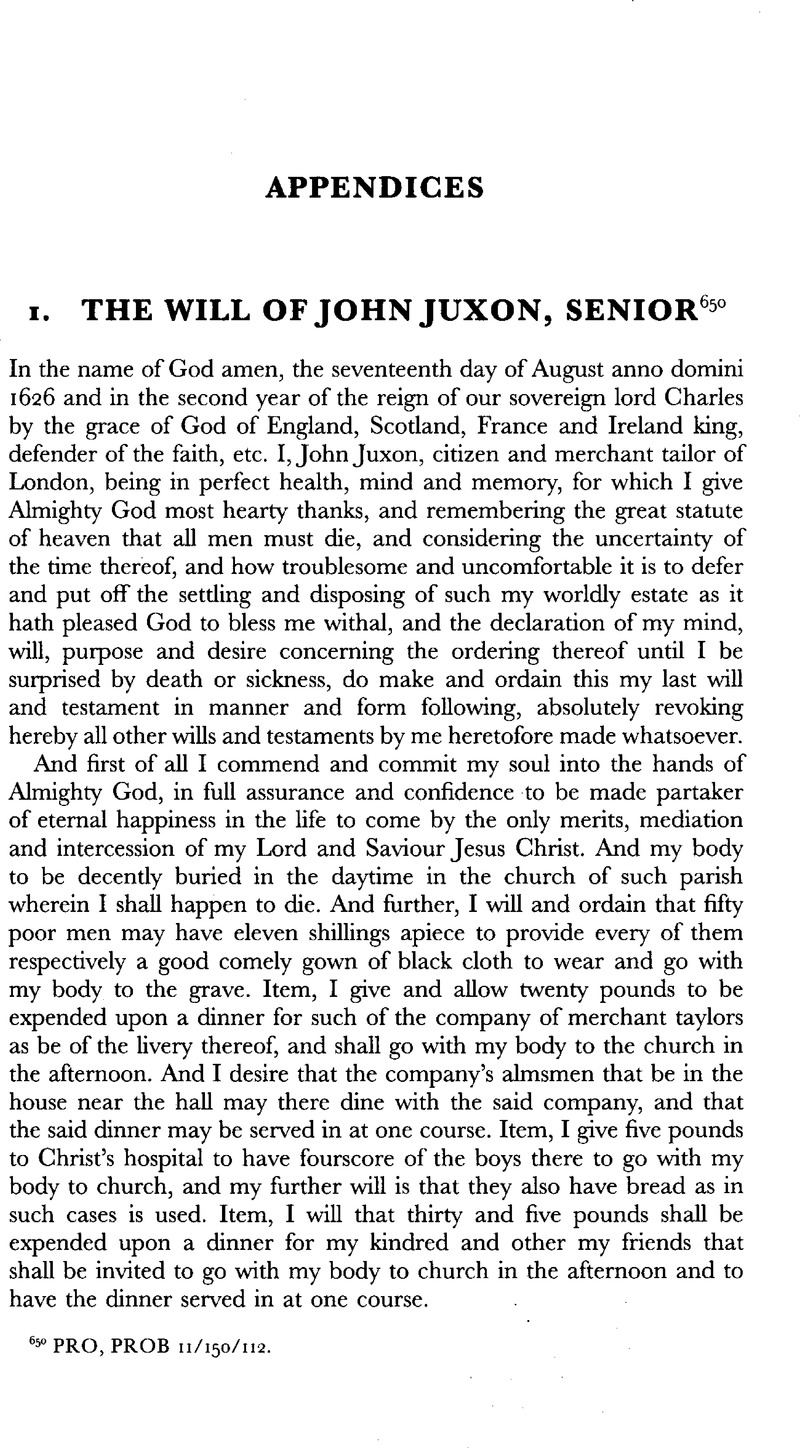No CrossRef data available.
Published online by Cambridge University Press: 13 October 2009

651 Denison was curate of St Katherine Cree at the time and had lived in the Juxon household for twelve years or more: above, p. 6 n. 32.
652 Richard Sibbes, as preacher at Gray's Inn and elsewhere, was one of the most popular and influential puritan divines of his generation: Greaves and Zaller, iii. 169–71.
653 Nathaniel Culverwell was a popular London preacher: Collinson, P., The religion of Protestants: the church in English society 1559–1625 (Oxford, 1982), p. 244.Google Scholar
654 Elias Crabtree was curate of St Lawrence Pountney and was to be articled against in high commission and cited before Laud in January 1632 to be warned to conform: Matthews, A. G., Calamy revised (Oxford, 1934), p. 140.Google Scholar
655 George Landford was vicar of Mortlake, Surrey, in 1617–30: Venn and Venn, Alumni Cantabrigienses, pt. 1, ii. 43.
656 The 18th day of September, A.D. 1626, commission issued to Arthur Juxon, uncle and guardian of the executor John Juxon son of the said deceased and the executor named in this will, for administration of the goods, rights and credits of the said deceased according to the tenor and effect of the will and codicil of the same deceased during the minority of the said John Juxon, son of the said deceased and executor aforesaid, having sworn an oath on God's holy gospels to well and faithfully administer the same.
657 This will was proved before that worshipful man, Sir Henry Marten, knight, doctor of civil law, commissary [of the prerogative court of Canterbury], on the 27th day of November A.D. 1635, upon the oath of John Juxon, the natural and legitimate son of the said deceased person, and his executor [named in this will]. To whom [was granted the administration of all and every the goods, rights and credits of the same deceased person] after he swore an oath well [and faithfully to administer the same]. The letters of administration of the goods of the same deceased, with his will attached, granted on another occasion by the authority of this court to Arthur Juxon in September, A.D. 1626 because of the then minority of the said John Juxon, the aforesaid executor, have now expired and ceased to apply, owing to the majority of the said executor.